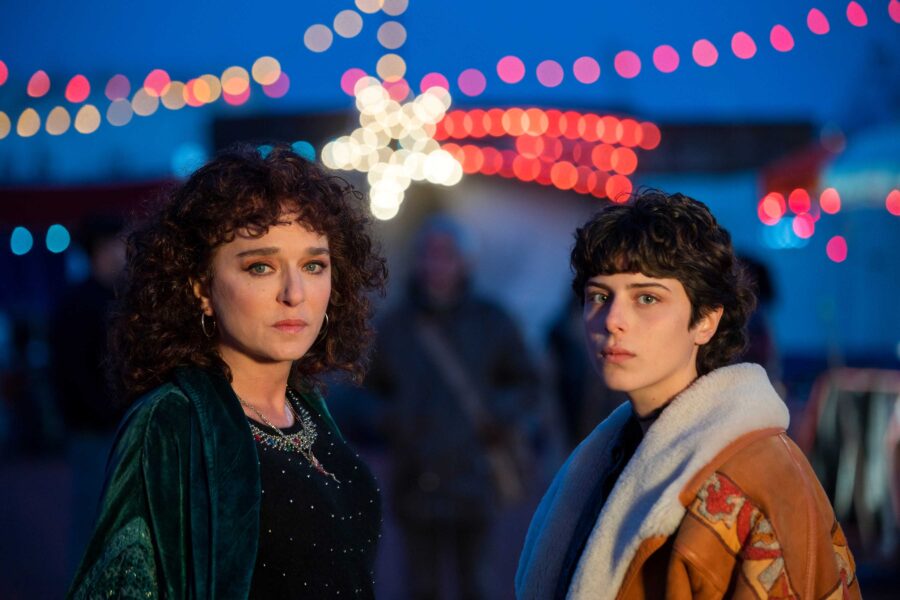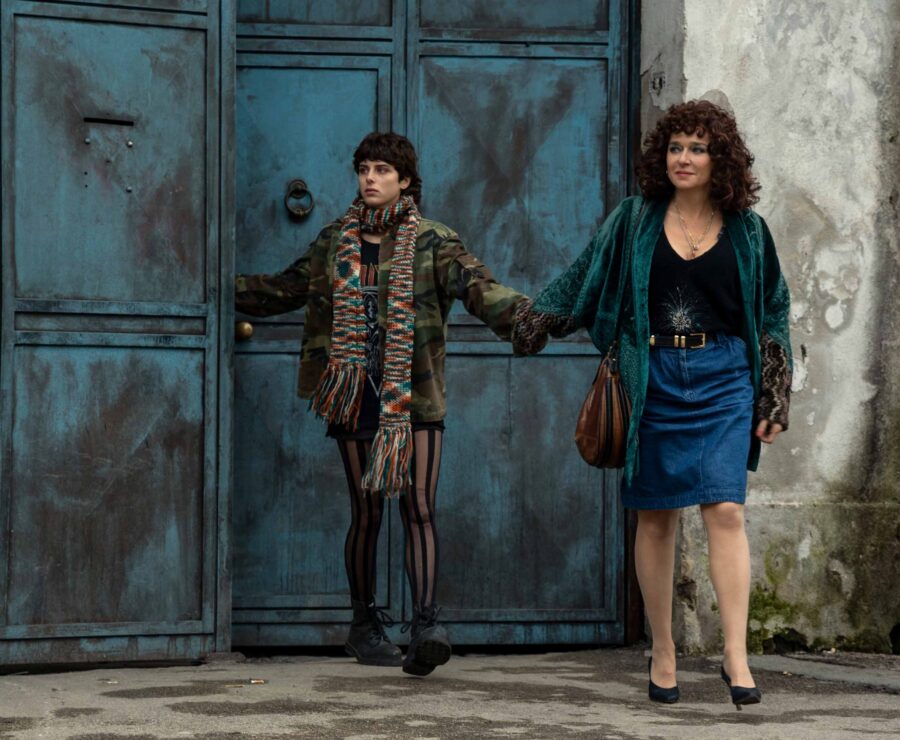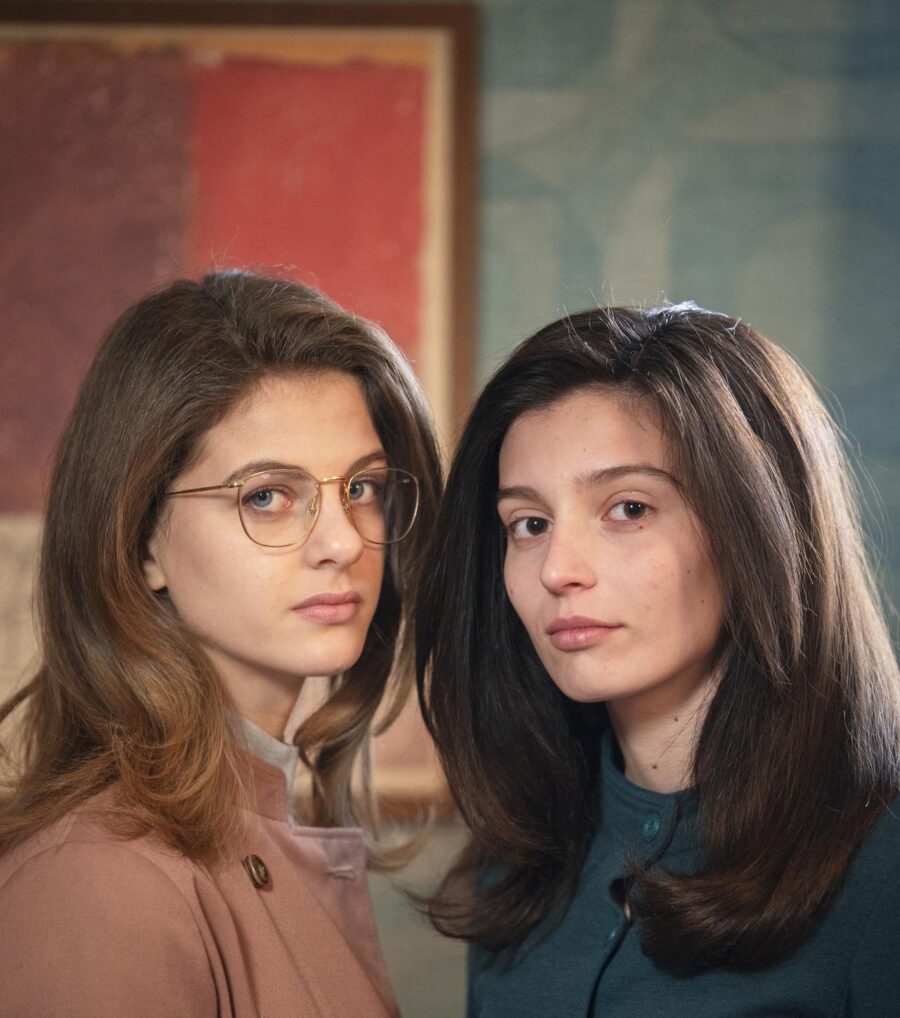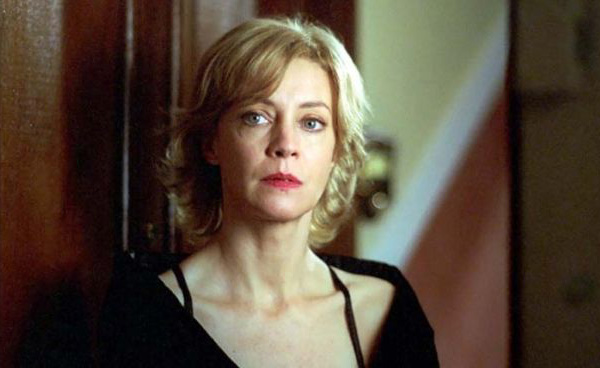I had read the latest novel by Elena Ferrante La vita bugiarda degli adulti in Italian when it was published in 2019, then I binge-watched the 6 part TV series The Lying Life of Adults when it became available on Netflix January 4, 2023. Click here for trailer.

It’s about the coming of age of a teenage girl, Giovanna (Giordana Marengo), her relationship with her aunt Vittoria (Valeria Golino), her parents and friends. Set in Naples in the mid 1990s, the dialogue is spoken in two distinct Neapolitan dialects, that are difficult to understand for Italians from other regions, but mercifully there are English subtitles.
I won’t spoil the story for you, as you should experience it yourself, preferably after reading the novel, but I will mention a sequence that made a strong impression on me. The two families of long-time friends meet up at a Festa de l’Unità in 1996, a yearly fair organized by the Communist Party, that started in 1945 right after World War II and continues until today. The leftist intellectual parents, who raised their children as atheists, and a young Catholic professor get into a debate about Jesus. I had endless discussions with my Catholic father when I told him at 16 that I did not believe in God. My dad had fought in the Resistance during World War II, after our town, Modena, like the rest of Northern Italy, was occupied by the Germans in 1943. The powerful words of a legendary partisan song resonate through those scenes at the fair. Here they are: “Fischia il vento, urla la bufera, scarpe rotte eppur bisogna andar, a conquistare la rossa primavera, dove sorge il sol dell’avvenir.” English translation: “The wind blows, the storm screams, Broken shoes and yet we have to go, To conquer the red spring, Where the sun of tomorrow rises.”

In 2018 I watched with great empathy the first season of My Brilliant Friend on HBO, from Ferrante’s 2011 novel L’amica geniale, in 2020 The Story of a New Name from the 2012 novel Storia di un nuovo cognome. I interviewed the young stars, Margherita Mazzetta (Elena) and Gaia Girace (Lila), and wrote an article. Click here to read.

In 2022 I watched Those Who Leave and Those Who Stay from the 2013 novel Storia di chi fugge e di chi resta, and I look forward to the TV adaption of The Story of the Lost Child from the fourth novel of the Neapolitan Quartet, Storia della bambina perduta published in 2014. I read those novels in Italian in 2016, and I identified with the life of these girls of my generation, particularly with Elena, who attended university in Florence during the student movement of 1968. In my case I participated in that at the university of Bologna.

Two Italian movies were produced based on Ferrante’s early novels. L’amore molesto (1995) was directed by Mario Martone from the 1992 novel, that was not translated into English until 2006, titled Troubling Love, and I have not read it yet, but it’s next on my list. I did watch the movie on Amazon last week. I did not relate to Delia (Anna Bonaiuto), who had moved to Bologna from Naples, then she comes back for a few days after her mother’s death.

I giorni dell’abbandono (The Days of Abandoment, 2005) was directed by Roberto Faenza from the 2002 novel by Ferrante, and it’s about the descent of Olga (Margherita Buy) into despair when her husband leaves her for a younger woman. I saw the movie years ago, but have not read the book. Some day I will.
In 2020 I read Ferrante’s third novel, La figlia oscura, published in 2006, because I knew that a movie was in production. The Lost Daughter (2021) was directed by Maggie Gyllenhall and shot in Greece in English. For me it was disappointing not to hear that Neapolitan dialect, and felt no connection with the story of a woman (Olivia Colman) vacationing at the beach reflecting on her relationship with her two daughters.
I have a theory as to why the author chose to be known by the pseudonym Elena Ferrante and not her real name, which is viewed as an intriguing mystery in the literary world. It’s probably because she does not wish to expose her ex-husband and daughters to the public eye, considering that her novels appear largely autobiographical. She stated: “I intend to keep anonymity in the name of privacy.”
